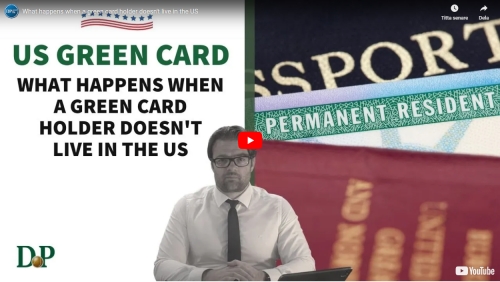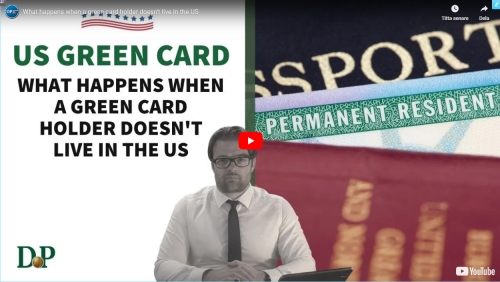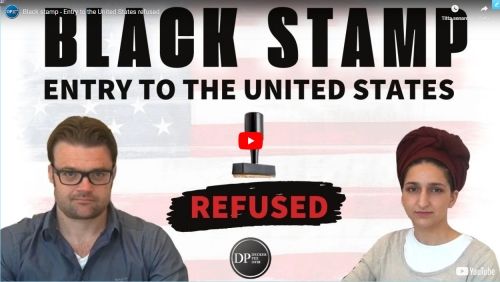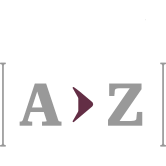What Is an Executive Order?
An executive order is an official instruction issued by the President of the United States to federal government agencies, telling them how to carry out existing laws or manage certain issues. It allows the president to take action without needing approval from Congress, but it cannot create new laws or override laws passed by Congress. Executive orders must follow the U.S. Constitution and can be challenged in court, reversed by Congress through legislation, or canceled by a future president. They are often used to quickly direct government policy or respond to urgent situations.
Overview of the A12 Country Travel Ban
President Donald Trump reinstated a broad immigration ban on June 9, 2025, following a firebombing attack in Boulder, Colorado, carried out by an Egyptian man who had overstayed his visa. Although Egypt was not among the countries listed in the order, the policy was framed as a necessary step to enhance national security. The ban prohibits entry into the United States for citizens of 12 countries: Afghanistan, Myanmar, Chad, the Republic of Congo, Equatorial Guinea, Eritrea, Haiti, Iran, Libya, Somalia, Sudan, and Yemen.
In addition to the full ban, the order imposes increased restrictions on individuals from seven other countries—Burundi, Cuba, Laos, Sierra Leone, Togo, Turkmenistan, and Venezuela—if they are outside the U.S. and lack valid visas.
The administration justifies the ban as a precaution against potential threats such as terrorism, extremist ideology, and abuse of the immigration system. The policy also highlights concerns about travelers who overstay visas or cannot be properly vetted under current procedures.
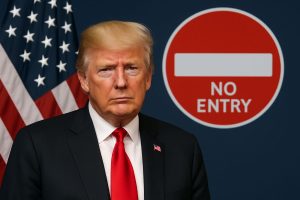
Why These Countries in Particular?
The countries targeted in President Trump’s 12-country travel ban and visa restrictions were chosen based on a combination of national security concerns, lack of cooperation with U.S. immigration enforcement, and high visa overstay rates. Several countries—such as Afghanistan, Somalia, Libya, and Yemen—were flagged for active terrorist threats, weak central governments, or ongoing internal conflict, which the administration argued compromised their ability to vet travelers or control borders. Nations like Iran and Cuba were designated as state sponsors of terrorism, while others, including Eritrea and Sudan, were cited for failing to share criminal records or accept deported nationals. High visa overstay rates were a key factor in the inclusion of Chad, Myanmar, Haiti, Congo-Brazzaville, and Equatorial Guinea, with some countries—like Chad—reporting overstay rates nearing 50%. Countries facing partial restrictions, such as Venezuela, Laos, and Turkmenistan, were accused of administrative shortcomings in issuing secure travel documents, refusing deportees, or failing to cooperate with U.S. authorities.
Exemptions and Special Cases
According to NPR and KSBW, the 12-country immigration ban is not without its exceptions and loopholes. While broad in scope, the policy includes numerous carve-outs for specific categories of individuals. Exemptions apply to lawful permanent residents (green card holders), current U.S. visa holders, and those whose entry is deemed to serve national interests. Dual nationals traveling with a passport from a non-banned country, as well as U.S. citizens who also hold citizenship in one of the banned countries, are not subject to the restrictions. Additional exceptions include athletes, coaches, and their families traveling to the U.S. for major international sporting events such as the World Cup or Olympics, as determined by the Secretary of State. Afghan nationals who received Special Immigrant Visas for working with the U.S. government during its military campaign, along with Iranians fleeing religious or ethnic persecution, are also exempt. Foreign nationals who have worked for the U.S. government abroad for at least 15 years, and their immediate family members, may enter the country, as can individuals previously granted asylum or refugee status. Diplomats, foreign officials on government business, representatives of international organizations and NATO, individuals traveling to U.N. headquarters in New York, and children adopted by U.S. citizens are likewise excluded from the ban. Additionally, applicants for immigrant visas may qualify for an exemption if they provide clear and convincing evidence of identity and a close familial relationship to a U.S. citizen or permanent resident.
Historical Context: Has This Happened Before?
It comes as no surprise that Donald Trump is now seeking to reinstate some form of immigration ban, given the precedent set during his first term. On January 27, 2017—just one week into his presidency—Trump signed an executive order that barred entry into the United States for 90 days for citizens of seven predominantly Muslim countries: Iran, Iraq, Libya, Somalia, Sudan, Syria, and Yemen. The order also suspended the U.S. Refugee Admissions Program for 120 days and indefinitely halted the resettlement of Syrian refugees. Widely known as the “Muslim Ban,” the policy sparked immediate nationwide protests and was swiftly challenged in court on the grounds of religious discrimination. Federal judges, including Judge Victoria Roberts in Detroit, issued injunctions blocking parts of the ban, such as the exclusion of lawful permanent residents. Although the first two versions of the ban were struck down, the Supreme Court upheld a third iteration in Trump v. Hawaii (2018), which removed Iraq and added limited restrictions on travelers from Venezuela and North Korea. In 2020, the administration expanded the ban to include six additional countries—Eritrea, Kyrgyzstan, Myanmar, Nigeria, Sudan, and Tanzania—citing national security and information-sharing concerns. While legal battles continued into 2019, the case was ultimately dismissed as moot after President Joe Biden rescinded the ban in early 2021.
Legal and Political Backlash:
Countries affected by the new immigration ban have issued a range of responses, reflecting both diplomatic frustration and attempts to maintain ties with the United States. Chad responded swiftly and decisively, with President Mahamat Idriss Déby announcing a suspension of visas for U.S. citizens, citing the principle of reciprocity and asserting, “Chad has no planes to offer, no billions of dollars to give, but Chad has its dignity and pride.” Somalia, in contrast, adopted a more conciliatory approach. Somali Ambassador to the U.S., Dahir Hassan Abdi, emphasized the importance of the U.S.-Somali relationship and expressed a willingness to engage in dialogue to address Washington’s security concerns. Similarly, a spokesperson for the Republic of Congo described the country’s inclusion on the list as a likely “misunderstanding” and voiced hope that the decision would be reconsidered. The African Union Commission also weighed in, releasing a statement expressing concern about the ban’s negative impact on diplomacy, educational exchange, and commercial engagement. While recognizing the U.S.’s sovereign right to safeguard its borders, the commission urged a more consultative and evidence-based approach, calling for constructive dialogue with the affected nations. Venezuela, which faces partial restrictions, responded with sharp criticism. Interior Minister Diosdado Cabello warned Venezuelans of the risks of remaining in the U.S., accusing the American government of fascist and supremacist behavior, and cited recent deportations of alleged gang members as evidence of hostility.
Conclusion: Future Repercussions — What Comes Next?
This executive order is still in its early stages, and many countries have yet to issue official responses—whether supportive or critical. Much like the 2017 travel ban, which ignited widespread protests and legal battles, the potential for diplomatic fallout and domestic opposition remains high. Social media platforms are already highlighting the human impact of the policy, with cases such as Haitian children in need of life-saving heart surgeries now unable to travel to the U.S. gaining public attention. As similar stories circulate, a rise in activism and public protest is likely. Based on historical precedent, immigration will probably remain tightly restricted for nationals of the 12 countries included in the order. During Trump’s first term, a comparable ban faced significant legal challenges but was ultimately upheld by the Supreme Court—indicating that this version may also withstand judicial scrutiny. Continued backlash is expected from both the international community and segments of the American public, and as legal options remain limited, this new ban is poised to fuel further debate around immigration policy, national security, and human rights in the months to come.
Need Guidance? Contact Us
While U.S. immigration policies such as Trump’s 12-country travel ban may not directly impact legal procedures in Israel, they often raise broader concerns about global mobility, legal uncertainty, and the emotional toll of immigration barriers. At Decker, Pex, Levi Law Office, we understand these challenges and specialize in immigration and citizenship matters within Israel and other countries, including the United States. Our firm has guided clients through complex legal processes involving aliyah, visas, foreign citizenship, and legal status in Israel, always with a commitment to transparency, compassion, and professionalism. If you are seeking assistance with Israeli immigration or citizenship, or with acquiring foreign passports in countries such as Germany, Austria, or Canada, please contact us at [email protected] to learn how we can support your legal journey.
This article was written with the assistance of Lindsay Cohen.







